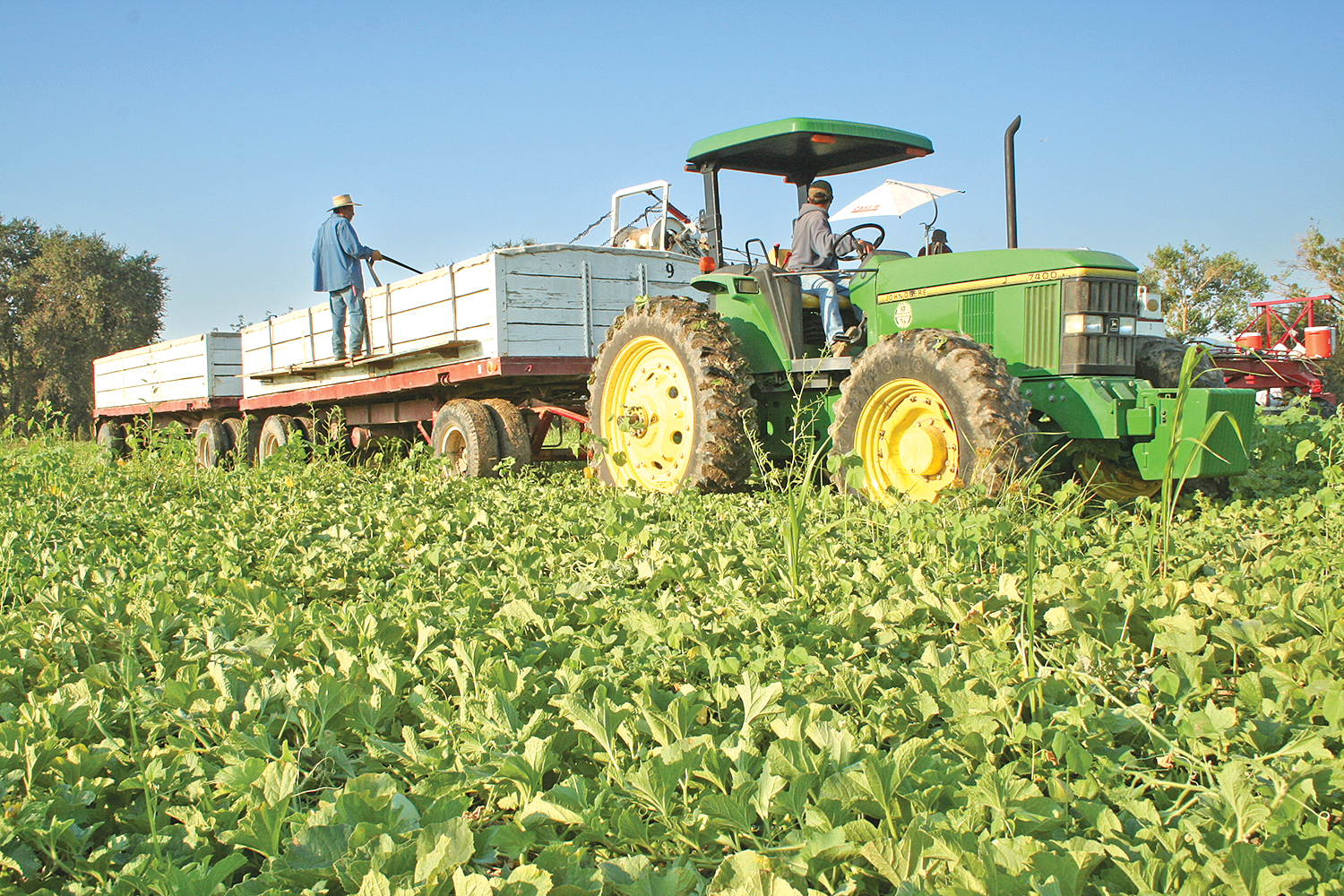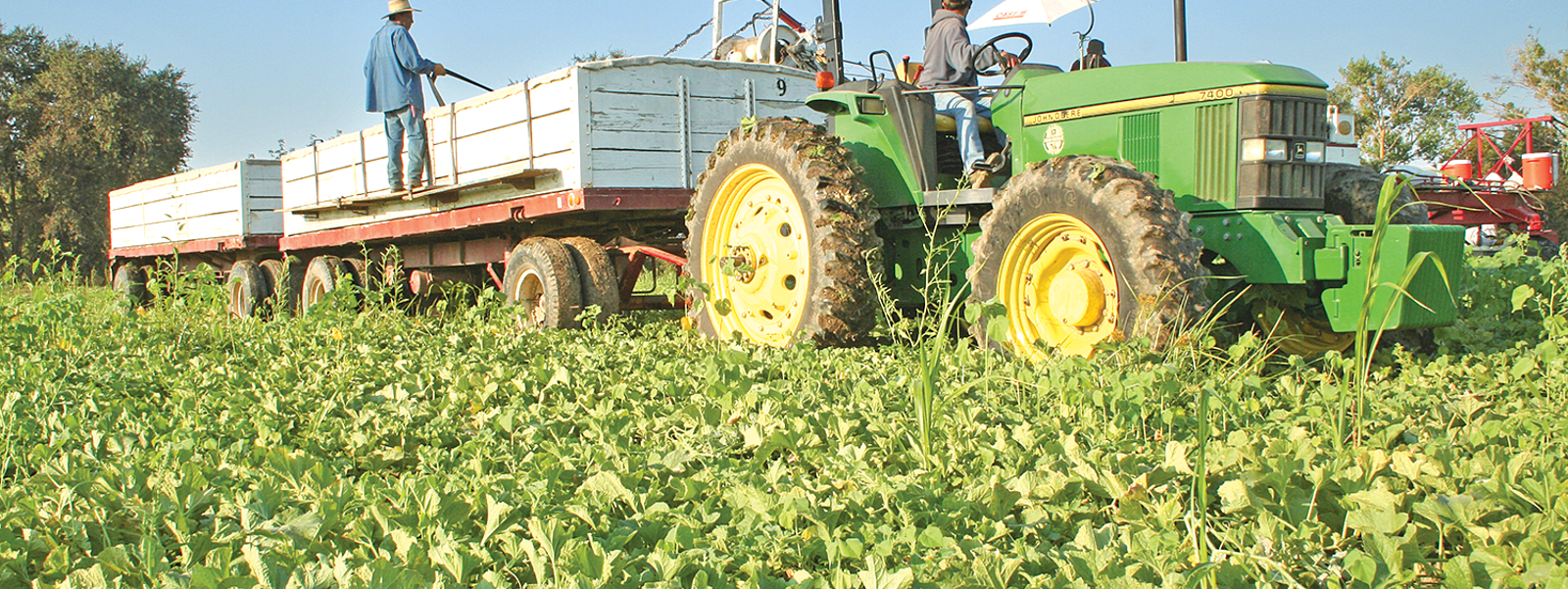Commentary: Can D.C. lawmakers grasp the labor needs of farms?

Congress continues to hear calls to pass legislation to protect and enhance America’s agricultural workforce. But divisions on immigration policy make it difficult to address farm employment.
Photo/Kathy Coatney


By Matthew Viohl
Nearly 67 years ago, then President Dwight D. Eisenhower was giving a speech before a group at Bradley University in Peoria, Illinois. Lamenting the challenges faced by the agricultural industry during and after the Korean War, he quipped, “You know, farming looks mighty easy when your plow is a pencil and you’re a thousand miles from the corn field.”
His words exemplify challenges that still exist today. Political figures in Washington, D.C., who have rarely had close ties to farming or ranching, often find themselves in charge of running programs or writing laws that have significant impacts on agriculture. As the demographics of our country have urbanized for over a century, so has the makeup of Congress.
These shifts have made the public and our elected representatives less familiar with where exactly their food comes from. Aside from some issues during the COVID-19 pandemic, their local grocery stores have generally been well stocked. Sure, maybe their favorite brand may not always be available, but nothing to a level of a food crisis.
Unfortunately, a crisis is exactly where we seem to be heading when it comes to farming in America. Rising production costs, availability and affordability of necessary chemicals and fertilizers, overregulation and natural disasters are just some of the significant factors making it harder and harder to maintain a sustainable business. And with roughly a third of all U.S. agricultural workers here in California, our producers know all too well that rising labor costs threaten that sustainability as well.
While Eisenhower lamented the disconnect between the nation’s capital and rural America, our industry finds itself in a position where congressional inaction threatens our future. For decades, the Senate and the House have failed to come together to address these challenges in a meaningful way. Though not exclusively a matter of “ag labor,” the last credible attempt to exact change in the area of immigration came in 2013. That was when the “Gang of Eight”—a bipartisan group of U.S. senators—helped pass the Border Security, Economic Opportunity and Immigration Modernization Act in a 68-32 vote.
The legislation would eventually die though after going to the House when then-Speaker John Boehner refused to give the bill a chance to be voted on. Although the politics have shifted since then, the crisis remains the same. Producers remain unable to meet their labor needs whether through high costs, lack of worker availability or often both.
For several years, the California Farm Bureau has helped push legislation such as the Farm Workforce Modernization Act, an initiative that would revamp the H-2A visa system and address the existing workforce as well. Although passed in a bipartisan House vote in the previous Congress in 2021, the bill stalled in the Senate despite a late push in 2022 by Sen. Michael Bennet, D-CO.
In today’s political atmosphere, the prospects of significant agricultural labor reforms appear more challenging than in preceding years. A divided Congress certainly doesn’t help. As we prepare to enter a presidential election year, the political tension becomes heightened, and lawmakers tend to avoid more controversial topics.
This has not stopped us from continuing to push lawmakers and their staff members to address these employment challenges. Other bills such as the DIGNITY Act, a comprehensive immigration bill, have received some bipartisan attention, and the House Committee on Agriculture kickstarted an Agricultural Labor Working Group to assess the severity of the workforce situation and suggest what aspects need the most attention.
Although labor is not directly under the purview of the House Agricultural Committee, its members have no doubt been pressured to support legislation on agricultural employment given the feedback at field hearings around the country during the past two years. Thankfully, California has three members on this small group of only 14: Reps. Jim Costa, D-Fresno; Doug LaMalfa, R-Richvale; and Salud Carbajal, D-Santa Barbara.
While the current state of agricultural labor policy is not one that offers much encouragement, there is little doubt that pressure for action continues to build on lawmakers and agency officials in D.C. It would serve them well to consider some of President Eisenhower’s remarks from that speech in 1956. After emphasizing the importance of registering to vote and making farm voices heard, he said this:
“Your decision can then assure and direct our progress in the years ahead—progress in our farm life and in our whole national life, progress toward our great goal: the prosperity of our people, strong and free, in a world of peace.”
To ensure the American Dream for farmers remains attainable, we must continue to urge our elected officials to understand these challenges and meet them head on in a bicameral and bipartisan way.
(Matthew Viohl is director of federal policy for the California Farm Bureau. He may be contacted at mviohl@cfbf.com.)




